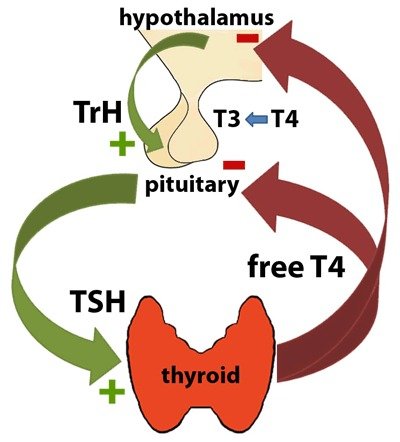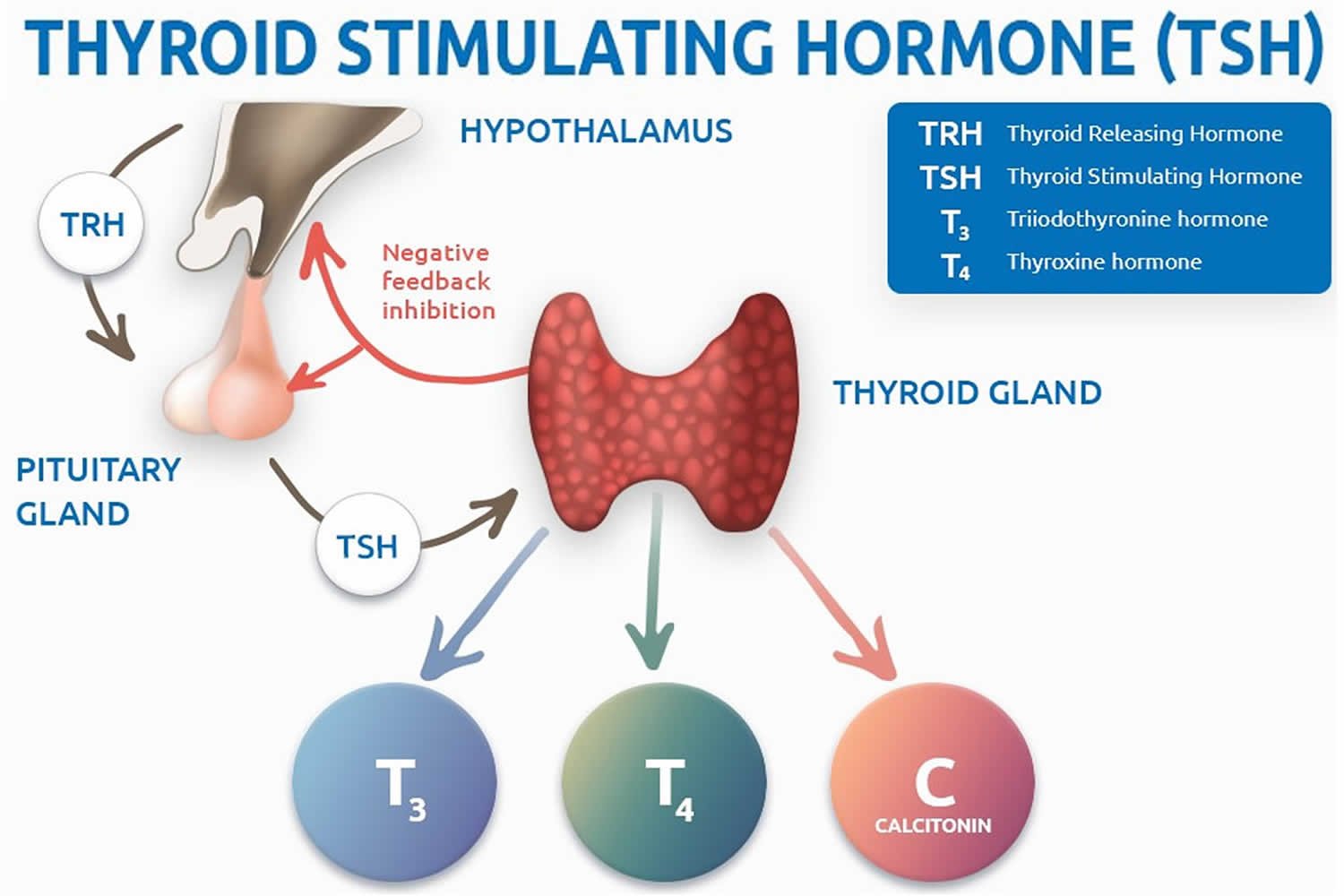The thyroid gland may be small, but it plays a critical role in regulating metabolism, energy levels, mood, heart function, and overall health. One of the most important markers used to assess thyroid health is TSH (Thyroid Stimulating Hormone). When TSH levels become abnormal—especially very high TSH levels—it may indicate an underlying thyroid disorder that requires medical attention.
Many patients ask what is considered a dangerously high TSH level, what causes TSH to rise, and what happens when TSH level is high. Understanding these aspects can help prevent long-term complications and support timely treatment, including options like Homeopathic Treatment for Thyroid when used under medical guidance.
What is TSH (Thyroid Stimulating Hormone)?
TSH is a hormone produced by the pituitary gland, located at the base of the brain. Its primary role is to regulate how much thyroid hormone—T3 (triiodothyronine) and T4 (thyroxine)—the thyroid gland releases.
- When thyroid hormone levels are low, the pituitary releases more TSH.
- When thyroid hormone levels are high, TSH production decreases.
This feedback system keeps the body’s metabolism balanced. When TSH is high, it usually means the thyroid gland is underactive.
What is the Function of Thyroxine?
Thyroxine (T4) is one of the two main hormones produced by your thyroid gland.
Its primary role is to regulate the body’s metabolism — that is, how your body uses and stores energy. But thyroxine does much more than just influence weight.
Here are the key functions of thyroxine:
Regulates metabolism:
Controls how quickly your body converts food into energy, affecting body temperature and calorie burning.
Supports heart and circulation:
Helps maintain a normal heart rate and healthy blood flow.
Influences brain and mood:
Essential for brain development in children and helps maintain concentration, memory, and emotional balance in adults.
Keeps skin, hair, and nails healthy:
Promotes normal cell renewal and repair.

Why is TSH Important?
TSH (Thyroid Stimulating Hormone) is important because it controls how much thyroid hormone (T3 and T4) your thyroid gland makes. These hormones regulate metabolism, heart rate, energy levels, brain function, and many other vital processes. Without proper TSH balance, the body’s entire metabolic system can become too fast or too slow.
If TSH is:
- Very high TSH / High → usually means your thyroid isn’t producing enough hormone (hypothyroidism)
- Low → usually means your thyroid is producing too much hormone (hyperthyroidism)
Monitoring TSH helps doctors catch thyroid disorders early, before they cause complications.
What is a TSH Test?
A TSH test is a simple blood test that measures the amount of Thyroid Stimulating Hormone in your blood. Patients often ask: Is fasting required for thyroid test?
No, fasting is usually not required for routine TSH, T3, and T4 tests. Doctors sometimes recommend testing in the morning because TSH can fluctuate through the day.
The TSH test is often combined with:
- Free T4 (thyroxine)
- Free T3 (triiodothyronine)
This gives a full picture of thyroid function.
What are Normal TSH Levels?
TSH (Thyroid Stimulating Hormone) levels help doctors understand whether your thyroid gland is working properly. The “normal” range can vary slightly depending on the laboratory, your age, and specific health conditions like pregnancy — but generally, doctors use these reference values as a guide:
- Normal (euthyroid) range:
Usually about 0.4–4.0 mIU/L for healthy, non-pregnant adults. - Borderline or mildly high:
4.0–5.0 mIU/L may suggest subclinical hypothyroidism — where the thyroid is starting to slow down, but T4 and T3 levels might still be normal. - Clearly high:
Above 10 mIU/L often means overt hypothyroidism, where the thyroid isn’t making enough hormones, and treatment is usually recommended. - Dangerously high:
Above 20–40 mIU/L signals severe hypothyroidism, which can slow metabolism dramatically and lead to complications like high cholesterol, heart issues, and, in rare cases, myxedema coma. - Below normal:
Under 0.4 mIU/L usually indicates the thyroid is overactive (hyperthyroidism), producing too much hormone.

What Does High TSH Mean?
A high TSH level almost always points to hypothyroidism — your thyroid is underactive, so your pituitary is sending stronger signals to get it to work harder.
Common causes:
- Autoimmune disease (Hashimoto’s thyroiditis): The immune system mistakenly attacks the thyroid, gradually reducing its ability to produce hormones.
- After thyroid surgery: Removing part or all of the thyroid to treat nodules, cancer, or goiter can lead to hypothyroidism.
- Iodine deficiency: Although rare today due to iodized salt, insufficient iodine can still cause thyroid hormone production to drop.
- Certain medications: Drugs like lithium, amiodarone, or some cancer treatments can interfere with thyroid function and raise TSH levels.
What Does Low TSH Mean?
A low TSH level usually means that your thyroid gland is producing too much thyroid hormone — a condition called hyperthyroidism or an overactive thyroid.
Here’s why:
TSH (Thyroid Stimulating Hormone) is made by the pituitary gland to “instruct” the thyroid to produce hormones (T3 and T4). When your thyroid makes more hormones than needed, your pituitary senses this and reduces TSH production to slow things down.
Reasons for TSH Increase (TSH Causes)
Many patients ask what is the cause of high TSH levels or what causes sudden increase in TSH levels.
Common causes include:
Hashimoto’s thyroiditis (autoimmune disease)
Thyroid surgery or radiation
Iodine deficiency
Certain medications (lithium, amiodarone)
Overcorrection or missed thyroid medicines
Stress and chronic illness
Symptoms of Low TSH / Hyperthyroidism
- Fast or irregular heartbeat
- Nervousness, anxiety, or irritability
- Unexplained weight loss
- Tremors (shaking hands)
- Heat intolerance and sweating
- Trouble sleeping
- More frequent bowel movements
What is Considered a Dangerously High TSH Level?
Doctors usually get concerned when:
- TSH > 10 mIU/L → Suggests your thyroid is underactive and usually needs treatment
- TSH > 20–40 mIU/L → Considered dangerously high, especially with symptoms and low free T4
At dangerously high TSH levels:
- Metabolism slows down dramatically
- Cholesterol can rise sharply
- Heart function may be affected
- You might feel extreme tiredness, brain fog, or even depression
- In severe untreated cases, it can lead to myxedema coma, a life-threatening emergency
If your TSH is very high, see a doctor promptly.

How to Get TSH Levels Balanced?
Balancing thyroid health involves:
- Taking thyroid hormone replacement medicine consistently (if prescribed)
- Following up with regular blood tests (usually every 6–12 weeks when starting or adjusting medication)
- Eating a balanced diet rich in iodine, selenium, and zinc
- Avoiding excess raw goitrogenic foods (like cabbage, cauliflower, broccoli, and soy)
- Managing stress, which affects hormone balance
- Exercising regularly to support metabolism and mood
Which Fruit is Not Good for Thyroid?
Some raw fruits are goitrogenic, meaning they can slightly interfere with thyroid hormone production if eaten in large amounts:
- Strawberries
- Peaches
- Pears
Cooking them reduces this effect. Moderate amounts are usually safe, but ask your doctor or nutritionist for advice based on your thyroid levels.

Possible Complications of Untreated High TSH
When TSH is high, it usually means your thyroid is underactive (hypothyroidism) and your body isn’t getting enough thyroid hormones (T3 and T4). If left untreated, this imbalance can affect almost every organ system.
Here are some possible complications:
Heart problems
- High cholesterol and triglycerides
- Increased risk of atherosclerosis (hardening of the arteries)
- Higher chance of heart attack or heart failure due to a slower heart rate and weakened heart muscle
Mental health changes
- Depression and mood swings
- Memory problems and difficulty concentrating
- Slowed thinking and “brain fog”
Weight gain and metabolism slowdown
- Unexplained weight gain
- Persistent fatigue and low energy, making exercise harder
Reproductive and fertility issues
- Irregular or heavy menstrual cycles
- Increased risk of infertility or complications during pregnancy
Nerve and muscle problems
- Muscle stiffness, cramps, or weakness
- Tingling or numbness in the hands and feet due to fluid retention
Myxedema and myxedema coma
- Severe long-term untreated hypothyroidism can lead to myxedema — a form of tissue swelling.
- In very rare and extreme cases, it may progress to myxedema coma, a life-threatening medical emergency with severe mental slowing, low body temperature, and slowed breathing.

Frequently Asked Question:-
Q: What is TSH?
A hormone produced by the pituitary gland that controls your thyroid.
Q: What is the function of thyroxine?
Regulates metabolism, heart rate, temperature, mood, and many vital processes.
Q: Is fasting required for thyroid test?
Usually no.
Q: Which fruit is not good for thyroid?
Strawberries, peaches, pears (raw and in large amounts).
Q: Can thyroid be cured permanently?
In modern medicine, usually lifelong treatment is needed; homeopathy works on root causes, which may reduce medicine need over time.
Conclusion
A dangerously high TSH level (usually over 20–40 mIU/L) means your thyroid gland is severely underactive, and your body needs help urgently.
Early diagnosis, proper treatment, and lifestyle changes can help you live a healthy, energetic life.
If you’d like personalized, root-cause thyroid care, consider consulting Dr. Ankur Prakash, who combines medical understanding with holistic homeopathy to treat not just the numbers — but the person as a whole.








